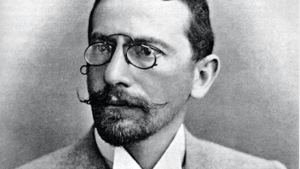
The Downs And Ups Of GM Elmars Zemgalis (Silman's Last Article)
GM Elmars Zemgalis was born in 1923 in Riga, Latvia. In 1951, Zemgalis emigrated to the United States where he became a mathematics professor, and in 1952, he was sponsored as part of a program to bring European sportsmen to the state of Washington. Shortly after, he permanently settled in Seattle.
Zemgalis continued to play chess, beating Olaf Ulvestad in a match (Zemgalis won 3-1.), won the Washington State championship twice (winning 9-0 in 1953 and 6-0 in 1959) and continued playing for another fifteen years. He received an honorary grandmaster title from FIDE in 2003, and he died in 2014 (aged 91).
* The Eternal Battle: Bishops vs Knights
* How To Improve Your Calculation
* How Can Older Players Improve?
* The Amateur's Mind: Turning Chess Misconceptions into Chess Mastery
* Complete Book of Chess Strategy
* Silman's Complete Endgame Course
* Pal Benko: My Life, Games, and Compositions
You might say, “All and well, but was he really grandmaster strength?” Let’s take a look:

Zemgalis suffered hard times after Latvia was invaded in 1944 by the Soviet Union (twice!). Fortunately, he managed to flee to Germany as a “displaced person.” After World War II, he played in twelve international tournaments. Here are a few:
- Augsburg 1946: Wolfgang Unzicker 1st, Zemgalis 2nd (undefeated), ahead of Saemisch.
- Regensburg Klaus Junge Memorial 1946: Bohatirchuk Fedor Parfenovich 1st, Zemgalis 2nd (losing only to Bohatirchuk), ahead of Unzicker.
- Matison Memorial 1947: Lucius Endzelins 1st, Zemgalis 2nd (two losses and seven wins), ahead of Bogoljubow.
- Wuerttemberg 1948: Zemgalis 1st without a loss.
- Latvian in Exile 1949: Four wins, four draws, no losses.
- Wuerttemberg 1949: Zemgalis 1st without a loss.
- DSB Team 1949: Zemgalis 1st winning all games.
- Oldenburg 1949: Zemgalis 1st (seven wins, ten draws, no losses), while Bogoljubow (who lost three games) tied for first, Zemgalis won the TB. Other players included Rossolimo, Unzicker, O’Kelly, Rellstab, Wade, and Saemisch.
As you see, Zemgalis was getting stronger and stronger, and in 1949, he hit his peak.
Wade, who was in the tournament, wrote this: “Elmars Zemgalis, a 25 years ‘old' Latvian, owed his success to a careful style and a faculty for playing according to the needs of the position, not the score. He was unbeaten, in fact, he has been unbeaten for eighteen months.”
Zemgalis and Bogoljubow were tied for first. Other players included Rossolimo, Unzicker, O’Kelly, and Saemisch.
Because of that, I (Silman) looked for something better and found it.
This shows you that there are wonderful ideas hiding, even if it takes decades to find them.
A soothing positional kill, dominating in the middle game and concluding in the endgame.
Perfect play should end with a draw. However, instead of saying, “Draw?”, Zemgalis decided to toss a trick at Black.
This endgame looks like an easy draw. However, the truth is that White is suffering a bit. Thus, White will try to find the best defense while Black will put as much pressure on his opponent as possible.
If you like endgames, especially this endgame, then you can spend a lot of energy finding out what's really going on.
Zemgalis was a fantastic blitz player. He won this tournament 7-0.
It’s very rare to play a perfect game. If you want to see one, look at what Zemgalis did here.
If you wish to know more about this amazing man, look for this book by IM John Donaldson. The name: “Elmars Zemgalis: Grandmaster Without The Title”.






